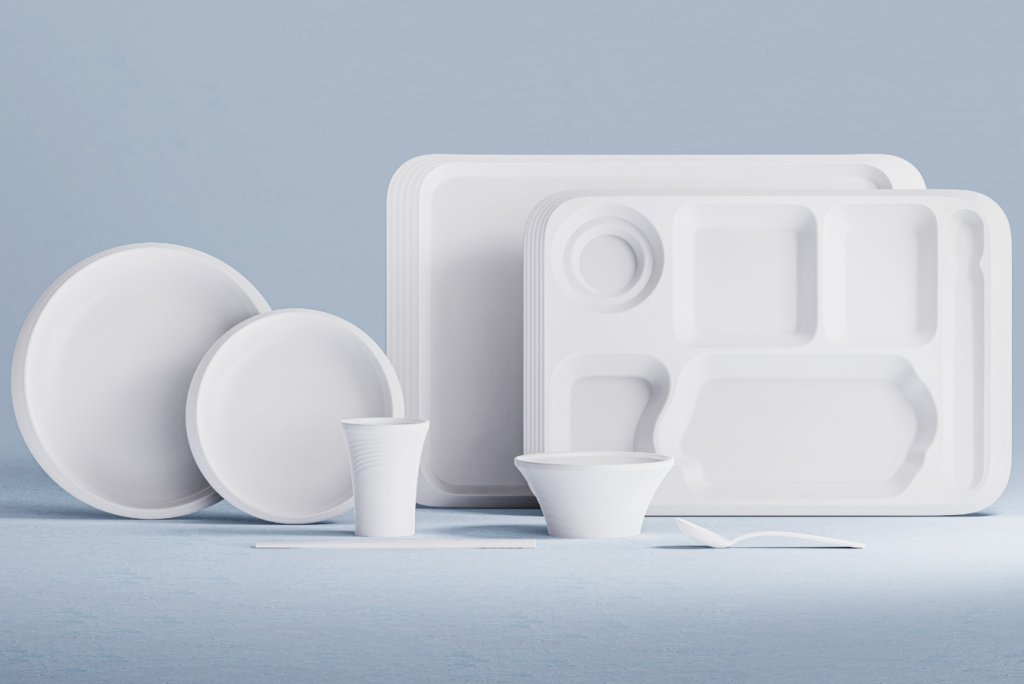November 11, 2024 – PLA Tableware from China Recalled in Denmark Due to Safety Concerns
A recent incident has seen a batch of polylactic acid (PLA) tableware exported from China to Denmark being recalled. The spoons, made from PLA material, were found to degrade rapidly, leading to the formation of small parts that pose a risk of choking for children, violating relevant safety directives and European standards. This event has not only raised concerns about product safety but also prompted the industry to reflect deeply on the characteristics of PLA materials and the conditions for export transportation and storage.

The rapid degradation of the PLA spoons is attributed to a complex set of factors. Firstly, from the material perspective, the crystallinity of PLA is a key factor influencing its degradation rate. Improper control of crystallinity during production results in loose molecular chain arrangement, making it easier for degradation media such as water molecules to penetrate and accelerate degradation. Additionally, the choice of additives is crucial, as inappropriate additives can promote degradation and even form microscopic phase-separated structures, facilitating the degradation process.
According to industry sources, the stability of PLA tableware spoons is also challenged during transportation, particularly during long ocean voyages lasting 30-40 days. The high temperature and humidity inside containers during this period significantly accelerate PLA degradation. Factors such as direct sunlight and poor ventilation can cause container internal temperatures to rise continuously, further exacerbating degradation.
In response to this issue, the industry has proposed several measures to prevent the rapid degradation of PLA tableware spoons. In the production process, it is essential to optimize production techniques, strictly control crystallinity, select appropriate additives, and establish a comprehensive quality inspection system to ensure product stability. During transportation, it is crucial to enhance container condition control by choosing containers with good heat insulation and ventilation performance, monitoring internal environmental parameters in real-time, and arranging routes to avoid high-temperature sea areas and long exposure to sunlight.
This recall incident serves as a warning not only for the application of PLA materials but also for product quality control and export transportation management across the chemical industry. In the future, the industry must pay greater attention to material characteristic research and strengthen quality control across production, transportation, and other links to ensure that products reach the international market safely and stably.














